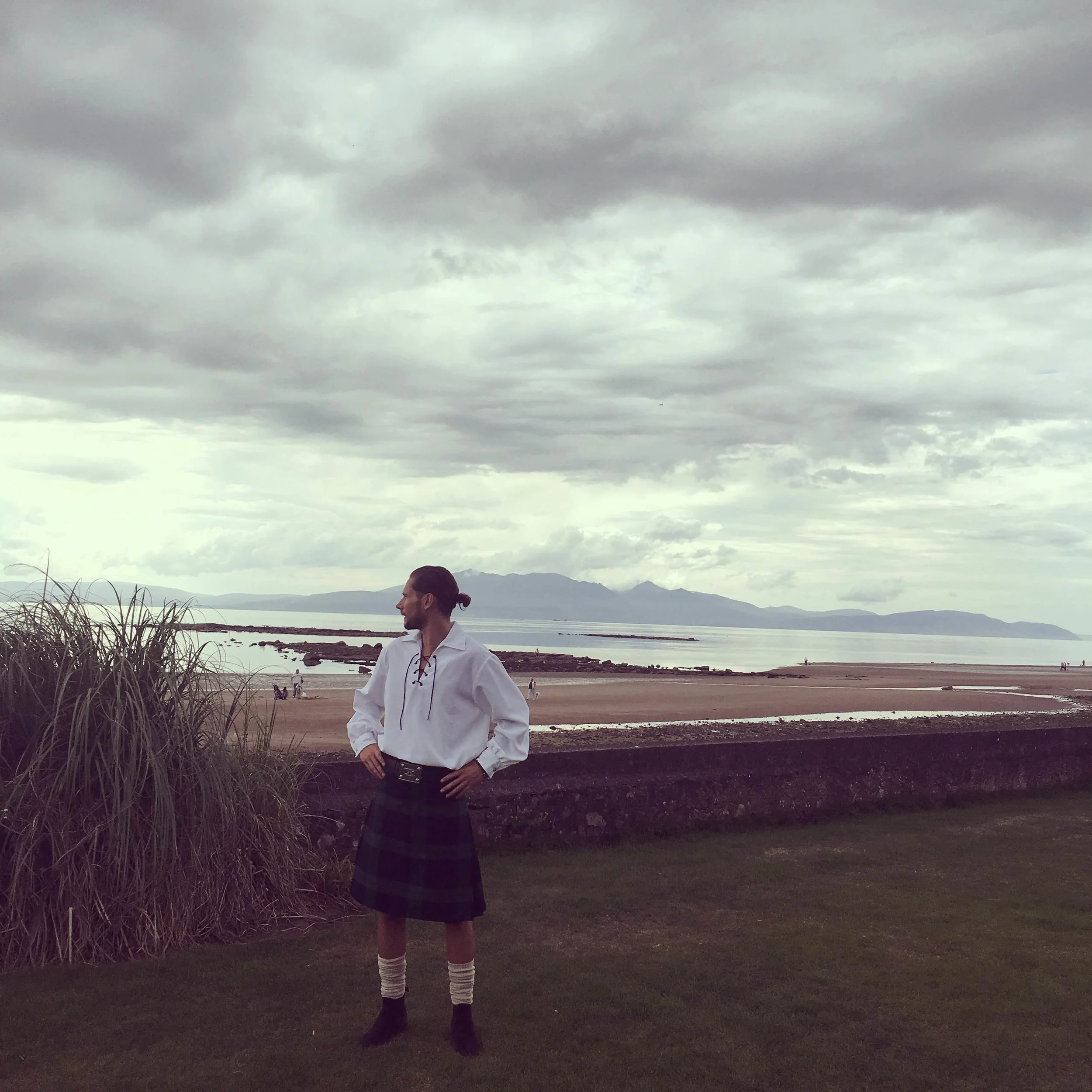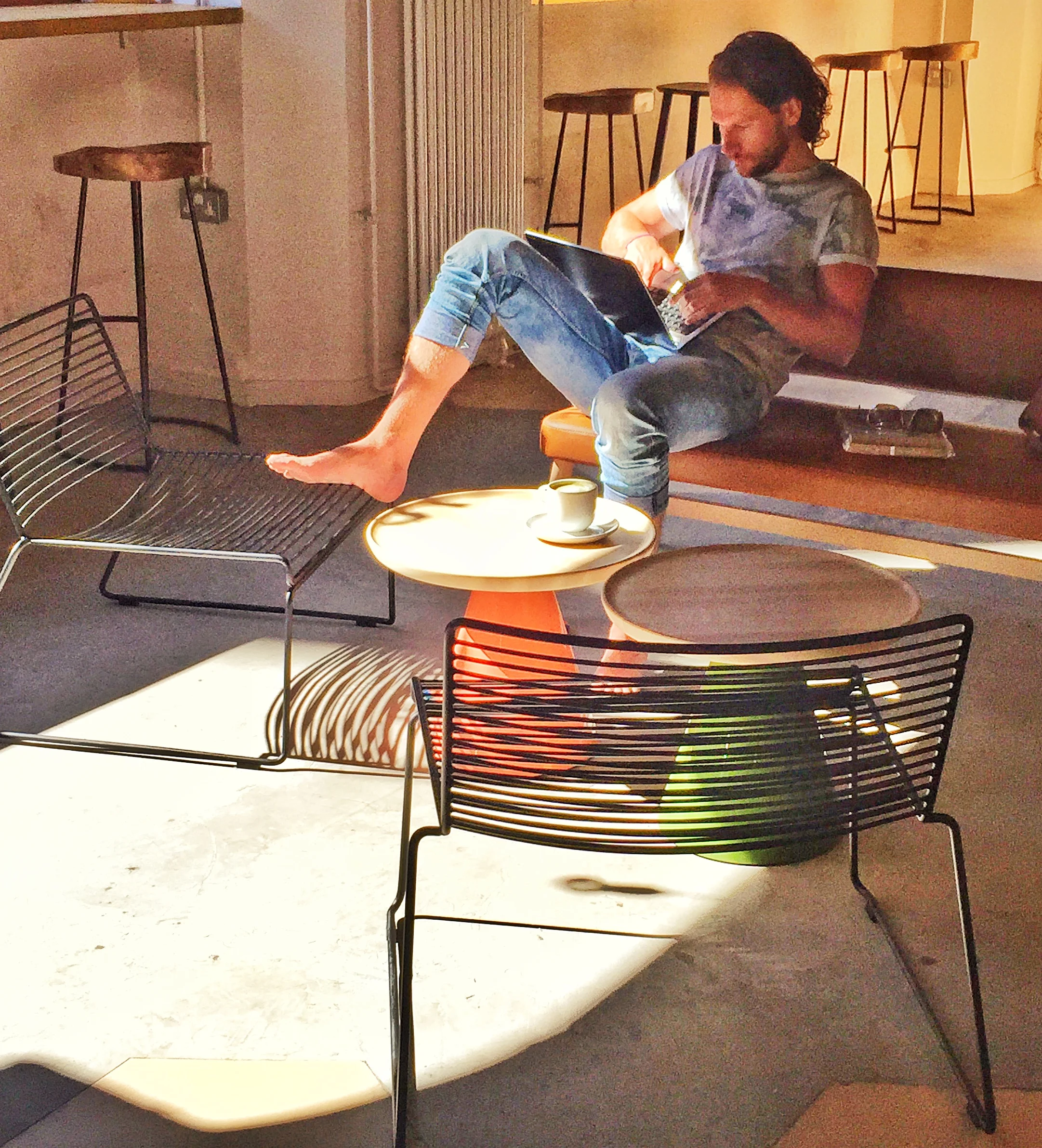#38 The Zoo School Designer
I've written and re-written this introduction about twenty times and can't quite find the words to introduce Christopher Watson. Chris is an evolutionary biologist and the founder of the world's first zoo school, TESS. In September, he will join Enrol Yourself's first cohort. Here's what he has to say...
What’s the biggest lesson you’ve learned over the last year?
I’ve learned a lot about the resolution of conflict within our decision making brains. But more, how this leads to amazing levels of variation in interpretation, perception, decision making itself, and most importantly for me, how we adapt to new ways of thinking.
For instance, we all know we can make a decision that doesn’t feel quite right but we know is best for us, or a decision that feels right but when thought through leads us down an undesired path. This is a conflict of unconscious emotional decision making and conscious reasoned decision making which all happens in our one brain - this is why teenagers are mental yet brilliant, as both of these brain regions are on ‘development fire’ at the time.
But what’s interesting is that there are also mechanisms nested within all aspects of gaining and using the information we are basing our decisions on.
Let’s take the condition blindsight. This is a condition where our eyes work fine, but the conscious part of the brain isn’t connected to our eyes, or isn’t working properly, whereas the unconscious part of our brain is connected and working fine. This means the sufferer wouldn’t be able to say, describe the room they are in, as they can’t consciously see it. But if you throw a ball at them, they’ll catch it, or at least they’ll move out of the way. Our unconscious brain deals with movement among other things – they see unconsciously, they see without seeing.
This is how I’ve felt and what I’ve been learning over the last year whilst moving from a career in academic science towards one in design and business. I’ve felt as if I’m blind to so much, yet when things are thrown my way, I catch them – then I’m good to go the next time. I think this is a plasticity we all have, that all our brains have; the most compelling evidence that validates the idea of being whoever or whatever you want to be. You only need to do, and then it’s done.
What’s your burning question of the moment?
At the moment I’m in the midsts of designing an education system that nurtures emotional and intellectual abilities. I’m infusing the practicalities of traditional education with modern research on learning, wellbeing and education technologies. Whilst merging into the same system, individual student freedoms and teachings on the importance and appreciation of our environment and nature.
The core of this system is the teaching and practice of empathy, as by instilling high levels of empathy in students, in effect, we are teaching them how to learn and feel, not what to learn and feel. The long-term social aim is to, through the next generation of our youth, instil emotional and intellectual learning within society – a universal tool and route solution for solving many, if not all, of our societal problems.
My burning question then is this: What would the word look like if we multiplied the levels of empathy, altruism, and cooperation we see in society today by say 10, 100 or 1000 times even, globally?
What’s the most inspiring thing you’ve seen/ heard/ read in the last year?
Seen; When Rosa Parks said ‘no’, she said it for the freedom of life. When Diane Fossey said ‘no’ she gave her life for the freedom of life. When Paul Watson and Jane Goodall say ‘no’ they do it for the freedom of life. Life inspires me, and I see it every day. Living things, whether that be humans, birds, trees or ants crawling across my leg. It all oozes freedom, every instance of life. Although connected to all other instances of life, it is an example of individual efforts, to reproduce, survive and thrive. It’s hard to imagine being inspired by the basil plant on your kitchen windowsill but look at it closely, look at the details. That basil plant is living, it’s breathing and growing. It has fluid running through its veins and body parts with purpose. It’s living, it’s living alongside you. This inspires me; it inspires me to touch, feel, and see life, to experience being alive.
Heard; I went to a talk in Oslo in November , by a young woman who seems to think she can make a big change in the world, I think she probably can. Her name is Lauren Currie, I’m not sure if you know her ;) I watched Lauren talk about design and how all designers are potentially guilty by association – this is an incredibly important point, we do create the world we live in now, we aren’t bystanders like in the cave man times. I watched her show a slide of these awful looking spikes that had been placed where a homeless person used to sleep. While the slide was behind her, she looked the audience in the eye, with defiance, a strength I’ve never seen before. She said “somebody designed these”, that wasn’t an informing phrase, it carried a message. Lauren called them out. She went on; “we don’t need more logos, we don’t need another ten syllable coffee”. Accountability flooded the room, I thought to myself in that moment, that’s it, that’s inspiration. I’ll be taking this with me, in everything I do; I’ll be holding myself to her standard.
Read; I’ve been quite inspired by reading Elon Musk’s biography. It’s a rags to riches story of a billionaire CEO so it’s very much the cliché. But, there are gems in there, and I don’t want to spoil any of it for the intentional reader. Instead, I’ll just quote the first chapter title and introductory text, it’s a great opener: “ELON’S WORLD: Do you think I’m insane?”
What would be your one piece of advice to students out there?
I’ve played with this question for a long time. There’s a lot of great advice out there, and there are a lot of great people out there giving it. However lots of advice isn’t standalone advice, by that I mean often advice comes in context and only works in that context, or indeed can be interpreted in many ways, some of which would hinder rather than help, depending on that interpretation.
For a long time now I’ve been searching, thinking and asking others if there are any pieces of advice anyone can give that is good advice regardless of context or interpretation, a lot like the truths of nature we find in science. I decided I would write a list of what I find so I could exactly pass this advice on. I’ve been searching for these ‘truth advices’ for the last 10 years and found a grand total of, one, which is; question everything.
There’s no downside and no context questioning doesn’t work in. My advice would be to question your designs, question others, question yourself, question the details and question the bigger picture. Question all things, even the questions. This is a selection process, what remains after rigorous questioning is your solid foundation, but question that too; it’s what’s closest to reality and ultimately your advantage in the information and disinformation era we find ourselves. It’s what you can build your projects on or around, it’s what you can base ambitions and life goals on. There is a tremendous amount of confidence found when you have rigorously questioned every aspect of a thing. It ultimately allows you to do and be whoever you want, which is what I’d wish for every student, for everyone.
One more point; there’s a silly piece of advice floating around, it says; “Don’t over think things”, this is none sense. Maybe it means don’t get stressed over things, or don’t worry about things out of your control. I’m not sure, but whatever the intent the actual words are inherently bad advice. You can’t overthink a thing, thinking is what humans are best at doing, do thinking more, and importantly question that thinking.
You can read the rest of the profiles here:
#37 The Thinking Clearly Designer
#34 The Designer of Vulnerability
#31 The Service Design TV Host
#28 The Human Interaction Designer
#26 The Design Writer and Doer
#23 The Behavioural Researcher
#21 The Local Government Designer



